The effects of COVID-19 on the situation in Mali
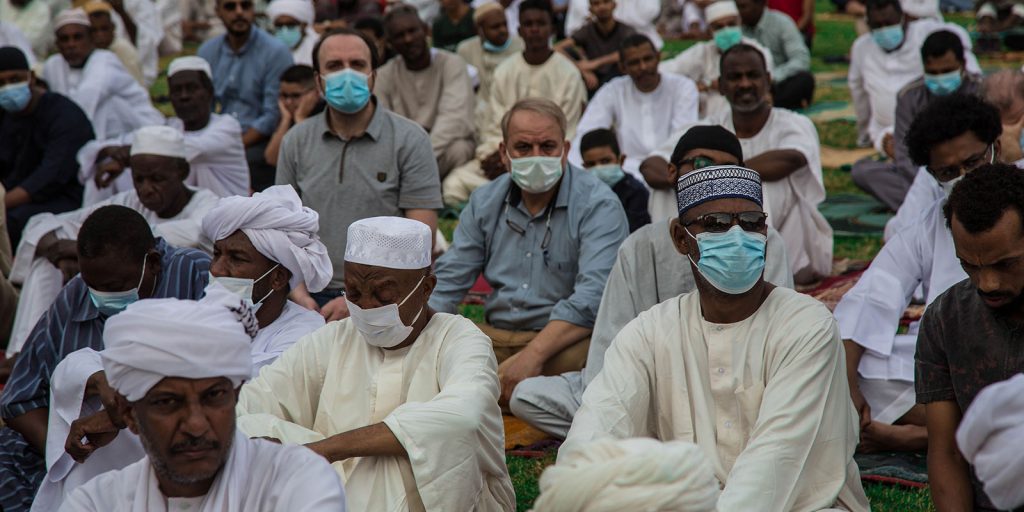
COVID-19 has affected all sectors of Malian society, especially the security, economic and social dimensions. In terms of security, the consequences of the COVID-19 pandemic have enabled jihadists to firmly re-establish themselves in central Mali and to make new inroads towards the west of the country. Economically and socially, COVID-19 and the measures introduced to prevent it have severely disrupted the lives of many people in Mali.
The COVID-19 crisis consequences: disrupting the African peace and security agenda
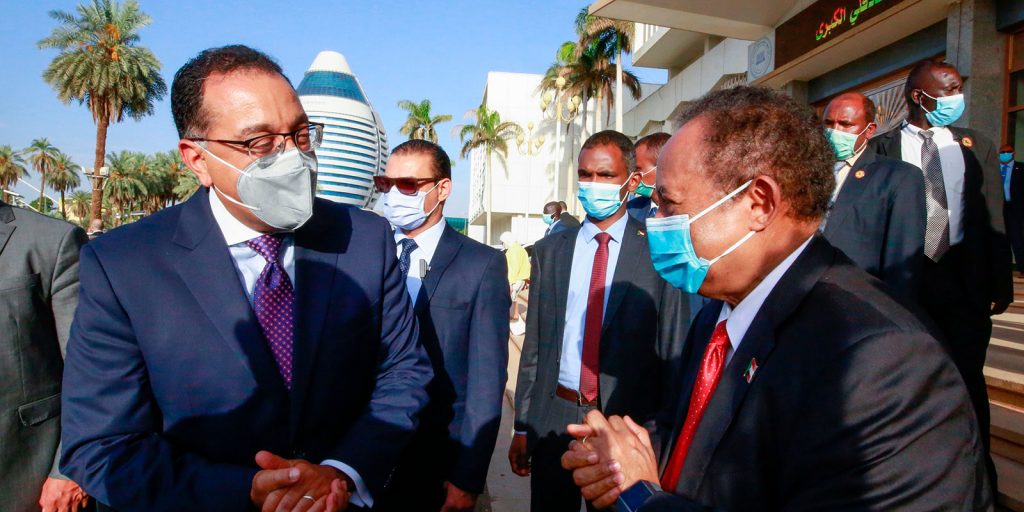
Despite its obvious limits and constraints, the African Union (AU) has been doing its utmost to address peace and security challenges in Africa. However, over the past few years, the involvement of external powers has drastically increased at the expense of seeking African solutions to African problems. This trend has deepened during the COVID-19 pandemic and the subsequent reduction of meetings, field visits and peace initiatives by the AU.
Young women must be included in Malian youth policies and programmes
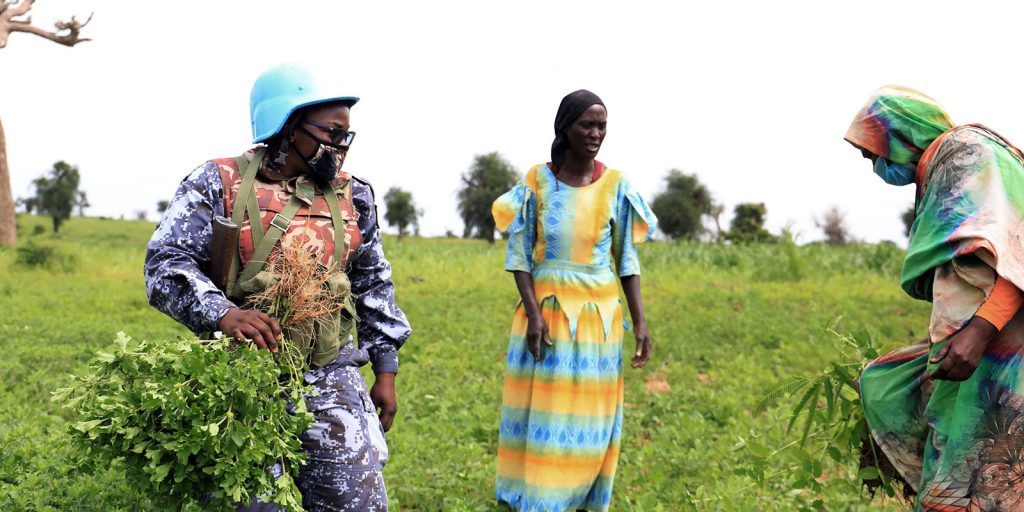
Since independence, the Republic of Mali has been faced with situations of political, institutional and security instability. Although the state of governance in Mali is weak and fragile, and is now under further pressure from COVID-19, it has adopted several policies and programmes to advance the youth and engage in the future development of the country. However, these initiatives do not address the specific needs of young women.
COVID-19 exacerbates the risk of violent extremism in the Sahel and West Africa
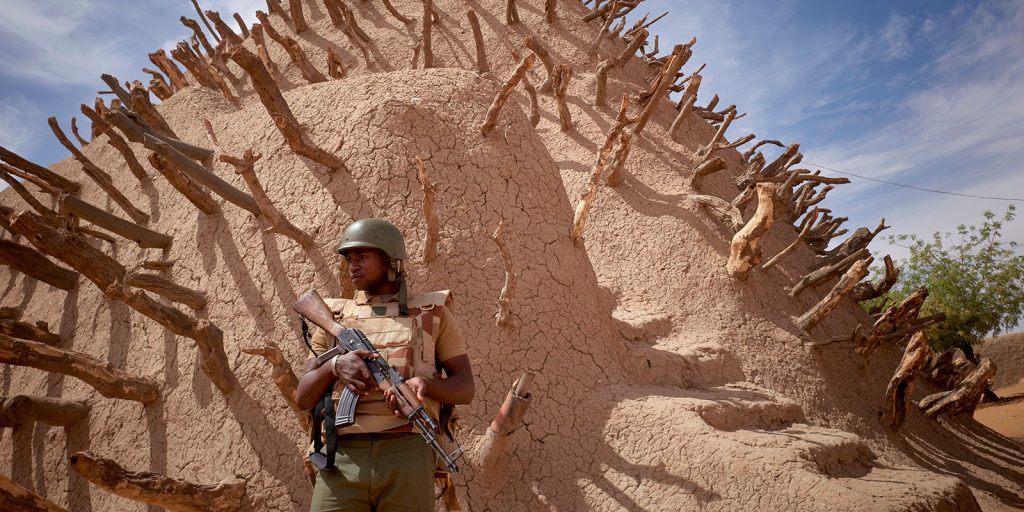
Long before the arrival of COVID-19, the Sahel and West Africa were two particular regions in Africa that were confronted by many complex and interrelated security and humanitarian challenges. From violent conflict to famine and other humanitarian difficulties, the spread of COVID-19 is magnifying the threats to the region’s most vulnerable populations. Arguably, the most challenging of these issues are the toxic atmosphere and insecurity created as a result of the activities of armed violent extremist groups.
How COVID-19 has impacted the UN peacekeeping transition in Sudan
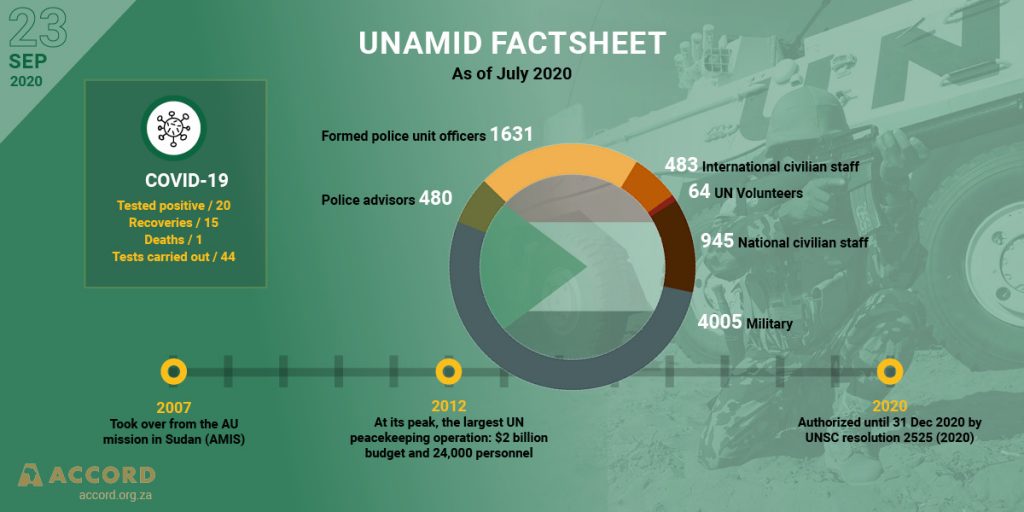
More than one year after the signing of the landmark Constitutional Declaration, Sudan’s ongoing transition remains one of the most important political transformations on the African continent. The country’s transition is fluid and complex, and undeniable areas of progress and reform continue to come up against deeply entrenched interests and inequalities, which have been compounded by COVID-19.
Sudan and COVID-19: the timing of the pandemic was especially cruel
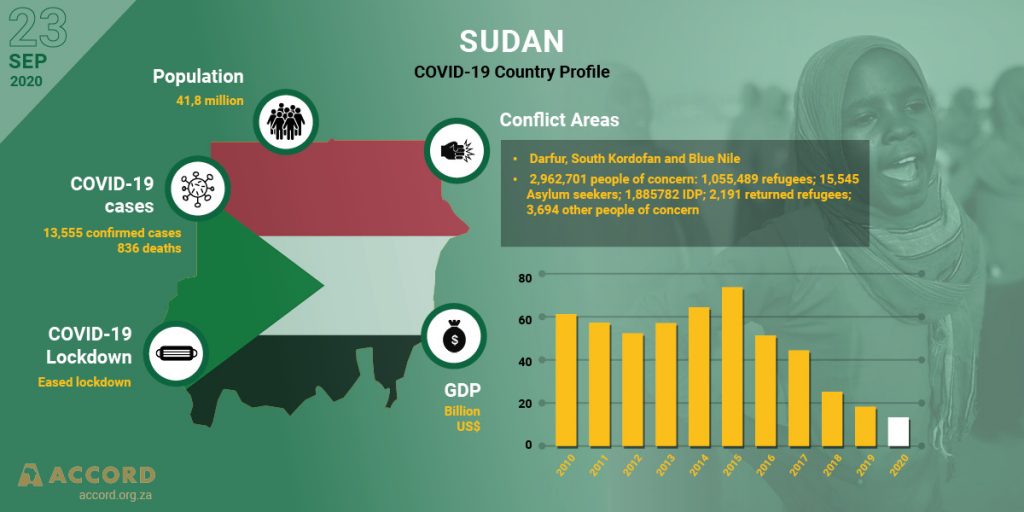
Following the remarkable changes brought on by the peaceful revolution in Sudan in 2019, 2020 was set to be a year during which the country could make great strides in delivering on the aspirations of the Sudanese people for change after 30 years of autocratic rule. The sudden arrival of the COVID-19 pandemic thus fell cruelly at a critical moment, with the country having just embarked on its make-or-break transition towards a civilian-led democracy.
COVID-19 in the Sahel – implications for an already deteriorating security situation
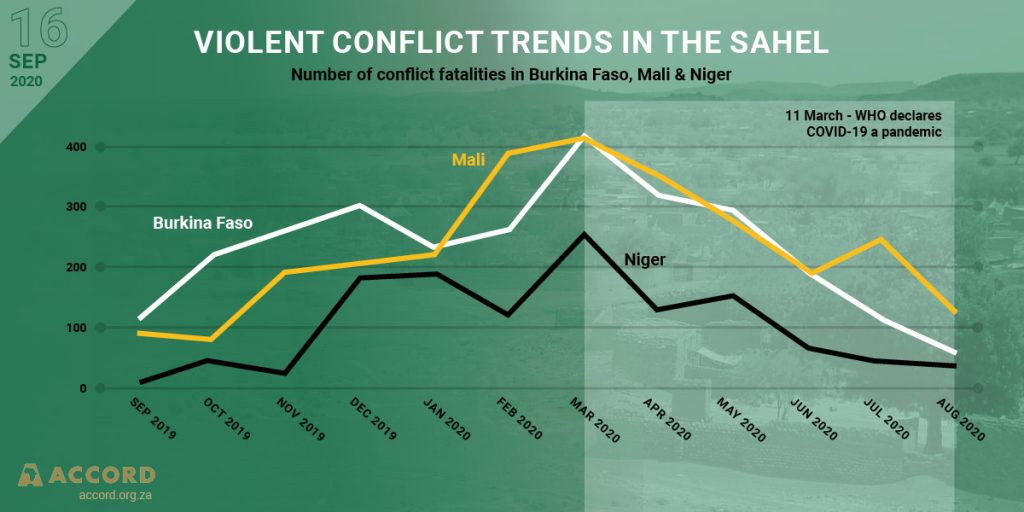
The COVID-19 pandemic is directly and indirectly affecting governments’ ability to secure their populations. This is also the case of the core Sahel countries – which, in this brief, are defined as Burkina Faso, Mali and Niger. Officially, none of them have been severely affected by the pandemic. However, this does not mean that COVID-19 effects could not materialise. The effects of COVID-19 will come, and while they may mainly be indirect, the consequences could be an additional burden on political and social systems that are already close to the brink.
Conflict, resilience and COVID-19 in Niger
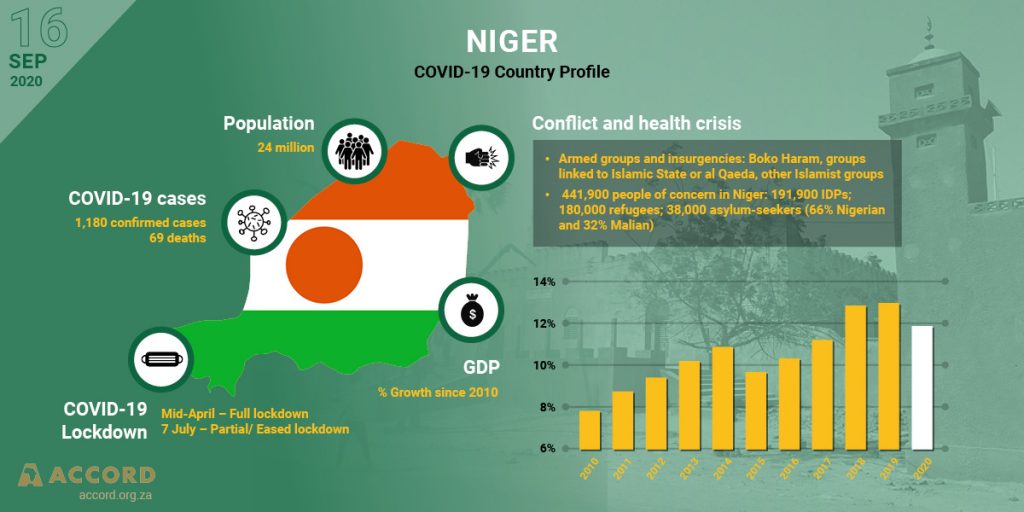
For several years, the Sahel has been facing insecurity. Niger, by virtue of its geographical position, is the Sahel country most affected by this insecurity, due to persistent attacks by non-state armed groups in its western region bordering Burkina Faso and Mali, and in its eastern region (the Lake Chad Basin), where Boko Haram is active. In addition to this, there is now the added threat of the COVID-19 pandemic.
Strengthening regional cooperation in the Sahel in response to COVID-19
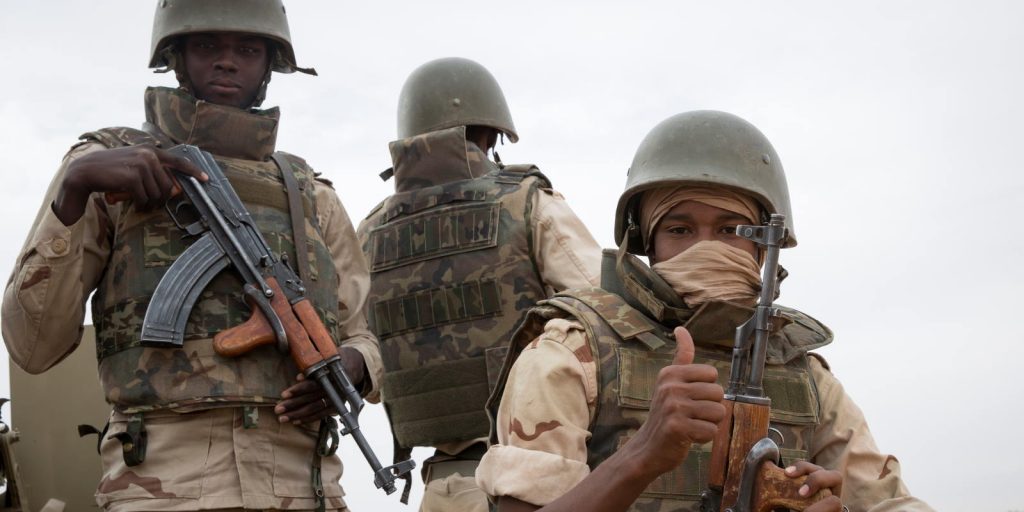
The Sahel’s stability and prosperity has been seriously challenged in recent years. The prevalence of intercommunal violence, climate change and food insecurity, among other factors, contribute to the region’s instability. These have been further fuelled by additional extenuating factors that include limitations in economic development, poor development in health and human welfare, and now the COVID-19 pandemic.
COVID-19 and the Sahel
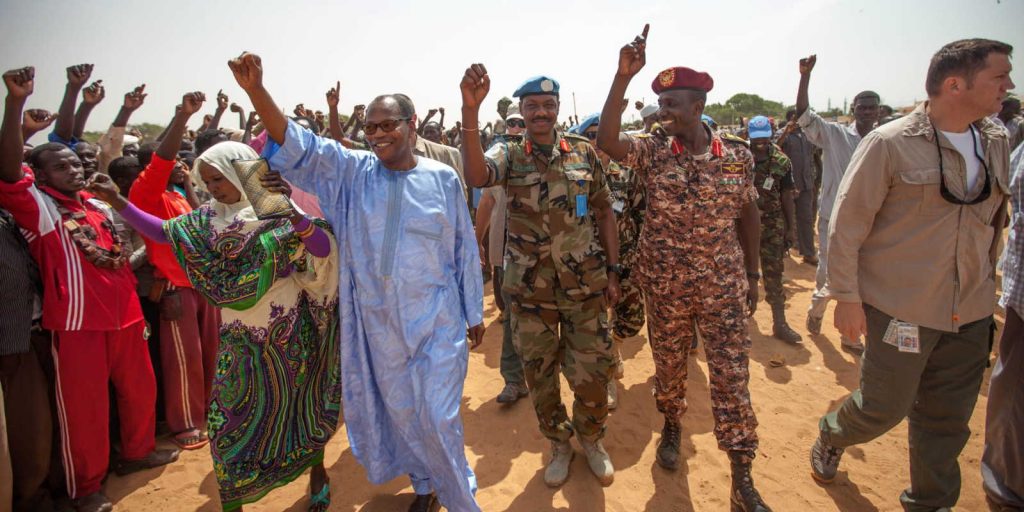
When the first COVID-19 cases reached the African continent, early estimates painted a dim picture of the impact of the pandemic on the region. Editorialists, public figures and think tanks predicted a widespread outbreak in the face of governments and health systems lacking the capacities to counter it. On 9 March 2020, the first two cases of COVID-19 were announced in Burkina Faso, followed by Niger on 19 March and Mali on 25 March. The outlook for the Sahel was particularly pessimistic. Some predicted that in addition to the human toll, the pandemic would spark the collapse of the Sahelian states.
